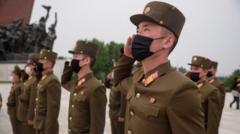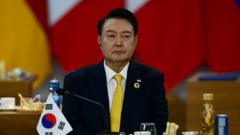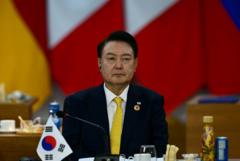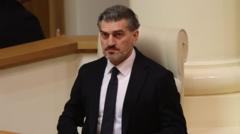**The South Korean National Assembly's impeachment of President Yoon Suk Yeol represents a significant political shift following widespread dissent over his martial law declaration, raising questions about the future leadership of the country.**
**South Korean President Impeached Amid Martial Law Controversy**
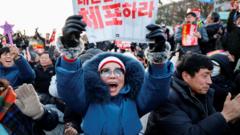
**South Korean President Impeached Amid Martial Law Controversy**
**Lawmakers vote to suspend President Yoon Suk Yeol following failed martial law attempt, triggering nationwide protests and calls for change.**
South Korea's political landscape has shifted dramatically, following the decision of its lawmakers to impeach President Yoon Suk Yeol, primarily over his botched attempt to declare martial law amid increasing unrest. The vote, which saw participation from members of Yoon's own People Power Party (PPP) alongside opposition lawmakers, has not only suspended the president pending a constitutional court ruling but also spurred jubilant protests from thousands of citizens outside the National Assembly.
The impeachment motion, which requires approval from the constitutional court, was passed with a two-thirds majority after several members of the PPP chose to side with the opposition. The move signals significant public discontent with Yoon's administration; recent polls indicated that approximately 75% of South Koreans supported the president's removal.
After the impeachment vote was confirmed on Saturday, ecstatic crowds cheered and celebrated in the streets, with fireworks lighting up the night sky. Demonstrators expressed their hope for a "happier" end to the year, as articulated by National Assembly Speaker Woo Won-shik, who highlighted the importance of the people's will in shaping the future of South Korea.
Yoon's attempt to impose martial law was framed by him as necessary to counter perceived threats from North Korea and dissenters undermining his administration. However, less than 24 hours after the declaration, which faced immediate backlash, the South Korean parliament overwhelmingly voted against it. This event catalyzed a politically charged atmosphere, leading to Yoon's apology and a record low approval rating for the president, dropping to just 11%.
Meanwhile, Prime Minister Han Duck-soo has assumed the role of acting president while the constitutional court deliberates on the impeachment decision, which must be reached within 180 days.
Despite the impeachment, supporters of Yoon gathered in Gwanghwamun Square, visibly shaken by the news, reflecting divided sentiments across the nation. The impeachment act echoes a similar political crisis experienced in 2016 with the removal of former president Park Geun-hye, illustrating a recurring theme of accountability in South Korean leadership.
As the days unfold, both supporters and opponents of Yoon are keenly watching for the court's ruling, with the prospect of a new presidential election looming if the impeachment is upheld, making this a pivotal moment in South Korea's political journey.


